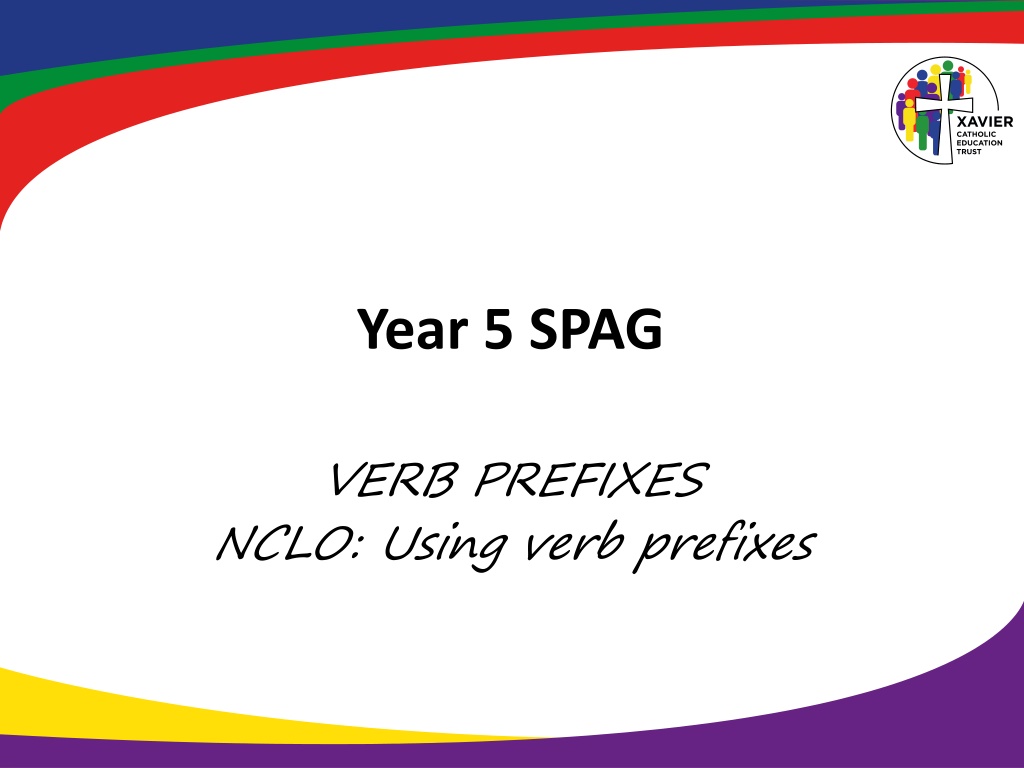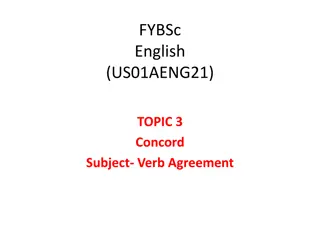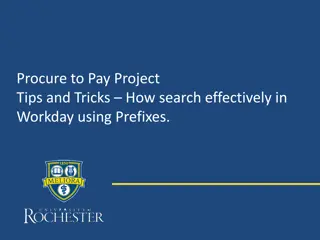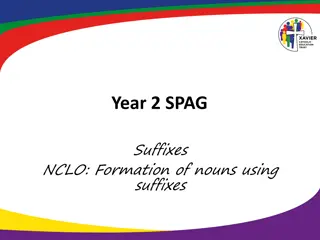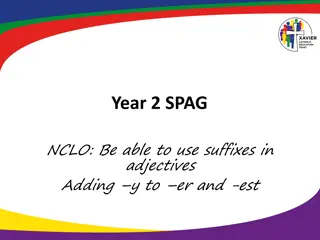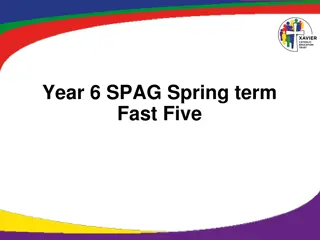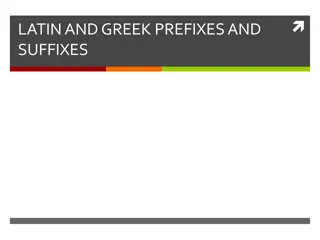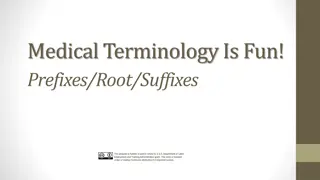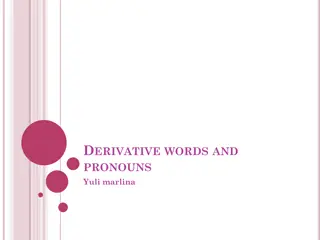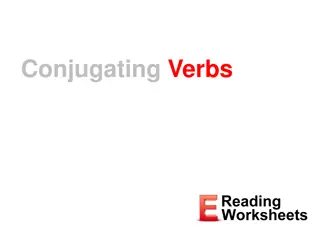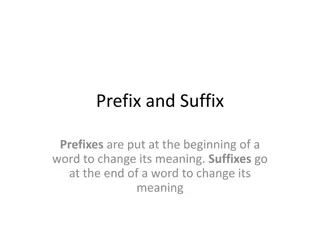Understanding Verb Prefixes - Year 5 SPAG
Explore the concept of verb prefixes in Year 5 SPAG, including examples like "un-", "dis-", "re-", "de-", "mis-", and "over-". Understand how prefixes alter word meanings and learn to add prefixes to root words. Dive into activities and visuals to enhance comprehension.
Download Presentation

Please find below an Image/Link to download the presentation.
The content on the website is provided AS IS for your information and personal use only. It may not be sold, licensed, or shared on other websites without obtaining consent from the author. Download presentation by click this link. If you encounter any issues during the download, it is possible that the publisher has removed the file from their server.
E N D
Presentation Transcript
Year 5 SPAG VERB PREFIXES NCLO: Using verb prefixes
What Are Prefixes? A prefix is a group of letters we add to the front of a word. Prefixes change the meaning or purpose of the word, e.g. un + kind = unkind How has the word meaning been altered? The word has become its opposite meaning (antonym)
De- What prefixes can you think of?
The prefix dis Sally disagreed with Tom over who threw the snowball. How has the word meaning been altered with this prefix? agree-----disagree Again the word has become an antonym (opposite) of the root word.
The prefix dis Can you disable the alarm?
Add the suffix dis to these root words! coloured dis dis dis trust like dis dis order dis please dis approve
The prefix re Danny had to refill the bucket.
The prefix re The T.V. showed an action replay.
The prefix de Dad had to defrost the chicken before he put it in the oven.
The prefix de The time to depart from the station had arrived.
The prefix mis Here are some examples of words with this prefix. What do you think mis means when it is used before a root word? Misbehave Misfit Mistrial Misstep Mislead Can you think of any other words which use the prefix mis-? The prefix mis- means wrongly or badly.
The prefix over Here are some examples of words with this prefix. What do you think over means when it is used before a root word? Overreact Overcook Overdress Overfull Overheat Can you think of any other words which use the prefix over-? The prefix over- means too much of something, above or beyond.
